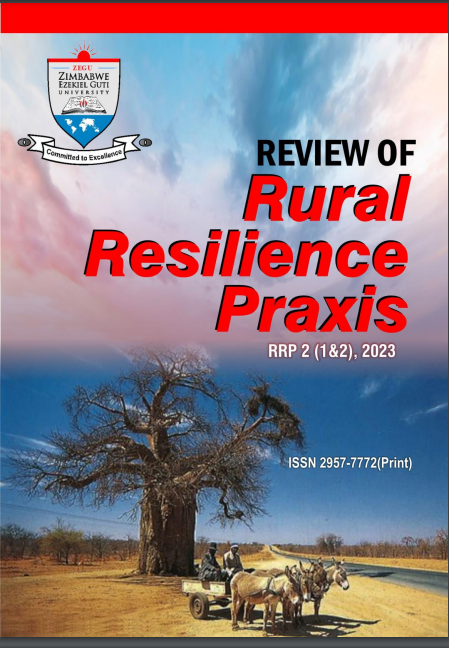Indigenous knowledge for rural resilience flood control and the green infrastructure agenda for Zimbabwe
DOI:
https://doi.org/10.71458/0cyz2r96Keywords:
preservation, tsholotsho, muzarabani, floods preparedness, flood management, SustainabilityAbstract
Zimbabwe has committed itself to green infrastructure agenda to achieve resilience against recurrent challenges like flooding and sustainable growth. Nonetheless, there is still a significant gap in the application of indigenous knowledge to flood control techniques. This article contends that rural community resilience is put at risk when traditional wisdom is neglected since it reduces the efficacy of sustainable practices. This impedes the adoption of comprehensive and locally appropriate flood management measures by ignoring the priceless insights entrenched in indigenous knowledge. The main argument in this study is that, strengthening rural resilience within the Zimbabwe Green infrastructure framework requires a more thorough and culturally sensitive strategy that acknowledges and integrates indigenous knowledge systems. The study suggests that valuable indigenous knowledge, practices to support floods preparedness exist in rural Zimbabwe and they inform decision making in cushioning individual families from the impacts of floods. Cases of Muzarabani and Tsholotsho districts are used to reveal the critical role indigenous knowledge plays in promoting rural resilience. The study concludes that the country should promote the include the key component of indigenous knowledge initiatives to strengthen rural resilience. It recommends that rural communities have to deal with the dual challenge of the disappearance and preservation of indigenous knowledge system.




